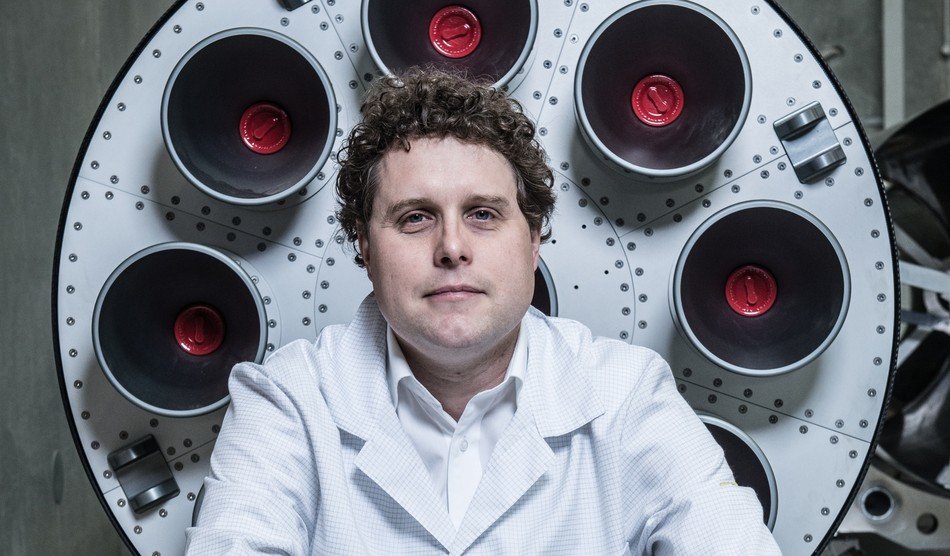Idealog Year in Review 2017: Peter Beck

 ?Favourite innovation that isn’t yours?
?Favourite innovation that isn’t yours?
It’s not quite there yet, but I’m impressed and excited by the big steps that have been taken this year in driverless car technology. I’m eagerly awaiting the day I can use the time I currently spend driving for concurrent productive activity. Basically, I want to be able to email while driving.
Favourite innovation that is yours?
This year was a landmark one for Rocket Lab terms of new innovations. I’m blown away by the things our team has been able to achieve, things many said were impossible – but you’ll have to wait until 2018 to hear about them.
Most interesting launch/trend/idea/building/product of the year?
Personal electric flying machines. They need a lot of development, but I am confident that we will see these play a significant part in the transport of tomorrow.
Lamest product/idea/concept/launch of the year?
The resurgence of the flat Earth theory. In an era of disseminated scientific theory and better access to knowledge than ever before, the fact that a growing number people are actively trying to prove our planet is not a sphere is mind-boggling.
Most promising New Zealand company/companies?
Halter. It’s an automated and configurable technology system to control livestock and applies concepts such as fenceless farming. Founded in New Zealand, the system is simple to use but incredibly complex and impressive in design. I think their technology will have an enormously positive impact on the productivity and sustainability of farms in coming years.

Own biggest success
It’s easy to say reaching space with the successful first test flight of the Electron rocket, but the flow on from that is committing to full production, and that’s an enormous success. We currently have six vehicles in production and we’re scaling up to produce more. This speed of production and launch is the real key to better access to space and improved infrastructure in orbit that serves us better here on Earth.
What’s the biggest mistake innovators/businesses will make in 2018?
Not going big enough. It takes a similar amount of effort to build a small business as it does to scale up and create something that will disrupt a global industry and change the game. Go big. Don’t aim for a million-dollar business – think in billions.
 What do you expect to see in the next five years?
What do you expect to see in the next five years?
We’re headed for an era of democratised information. The world will be connected by global internet from space, or will be well on its way at least. This will have huge ramifications for humanity. Billions more people will finally have access to the world’s knowledge and information. Thanks to improved space infrastructure, we’ll also see things like better weather and natural disaster prediction. We’ll understand a lot more about the impact we have on the Earth we live on.
What will be dead in the next 5 years?
Smartphones, as we know them at least. All we’re seeing now are token, incremental updates and questionable new features to existing technology. The industry is ripe for disrupting and it’s only a matter of time before someone comes along and reinvents the concept of a personal communication and information device.
What should be invented/or un-invented?
A direct tap into the brain for downloading and uploading information needs to be invented. The process of typing out information, or even speaking it to voice recognition software, is terribly inefficient. Being able to plug in and download a day’s meetings, notes or thoughts would create enormous efficiencies.
Favourite book/TV show/podcast/album/website/magazine/story/performance enhancing drug of the year?
Rocket Propulsion Elements, 9th Edition, by George P. Sutton. Best book there is.
What’s the one piece of tech would you have on a desert island?
The whole premise of being stuck on a desert island is that you need to survive long enough to be rescued. With this in mind I would choose a Mr Whippy ice cream machine. The combination of sugar and frozen fluids would give you enough energy and hydration to keep you going for some time I think.
Will the robots become sentient and take over and kill us all?
It’s possible but improbable. I expect we’ll learn some important lessons about AI in coming decades, but ultimately I believe it will be for humanity’s betterment, rather than our demise.
How long before we have:
Driverless cars: 2-5 years.
Flying cars: 5-10 years.
Immortality: Never.
Cities that all look like Venice: If we develop better climate monitoring infrastructure and act on the data from it, hopefully we won’t see this.
No planet to live on: When the sun becomes a red giant – around 4 to 5 billion years off.
No animals farmed or eaten: Centuries
Non-human lovers: Don’t believe they’ll ever fully replace humans.
No cash: 20 years.
Fusion energy: 20 years (please).
Universal basic income: Never – at least not globally.
Chips implanted in our brains: Depends on what you want the chip to do.
Colonies on Mars: 100 + years.
*****
Want to make a change in 2018?
Accelerate your career, launch a new product, service or business and grow your knowledge to prepare for the future of work.
Check out our Tech Futures Lab, one-year Master’s designed to help you find your innovation future!
APPLY NOW: https://www.techfutureslab.com/master-degree





